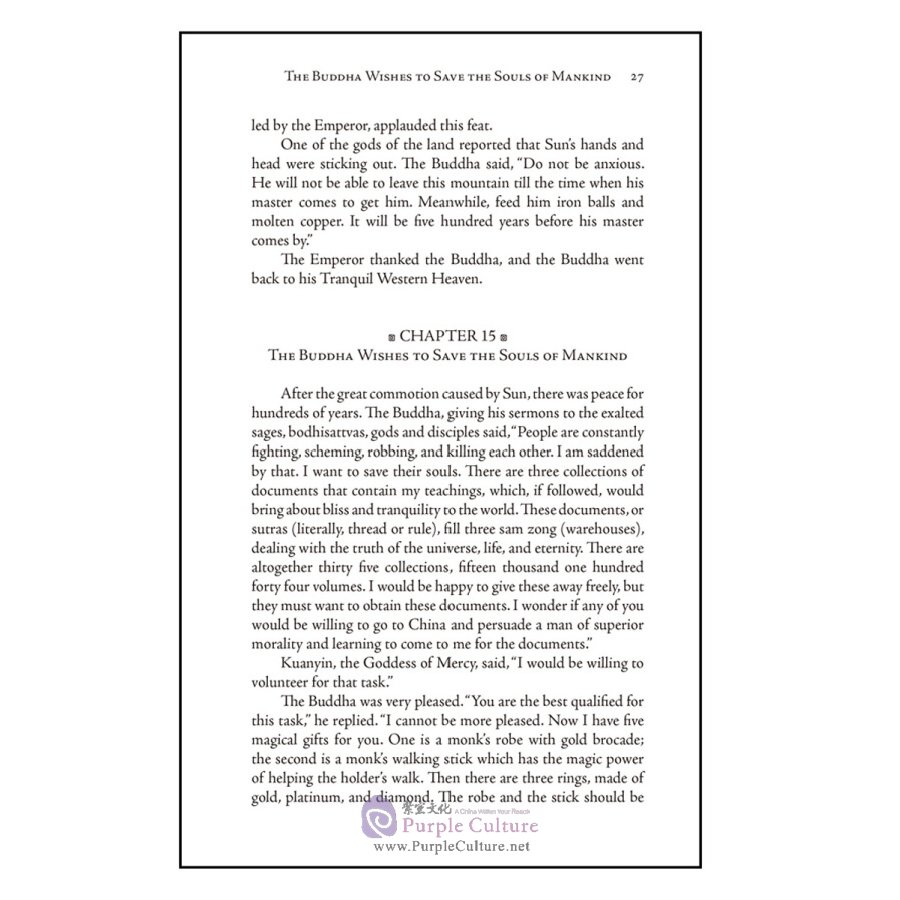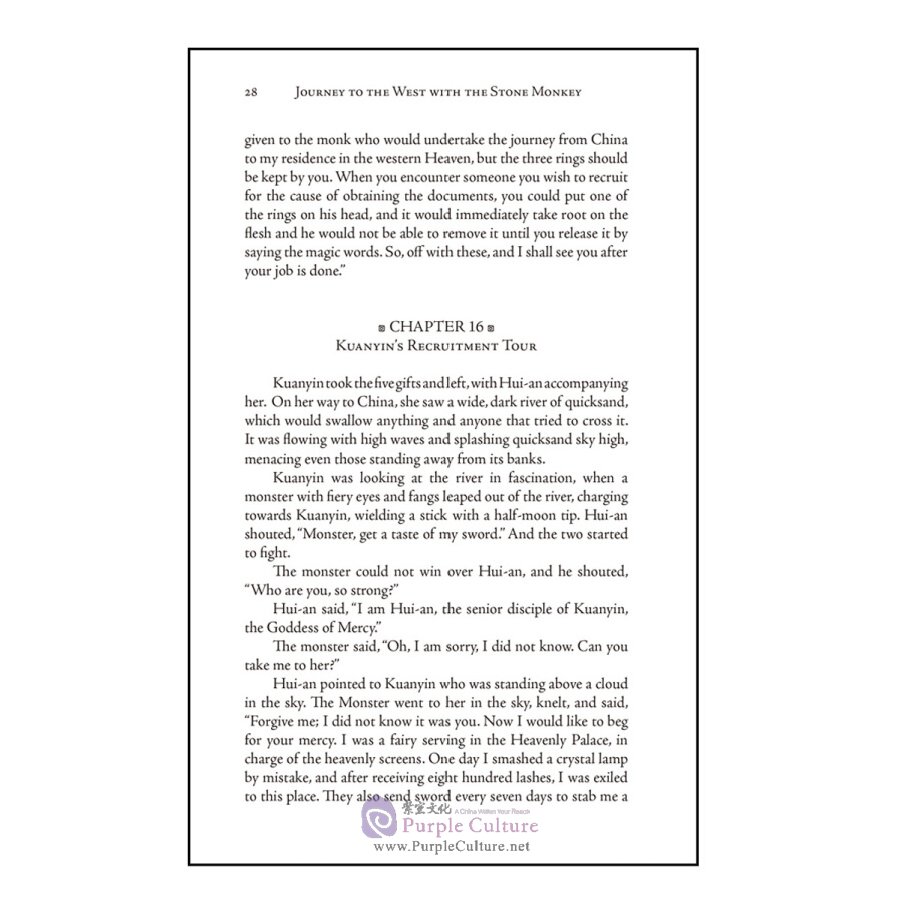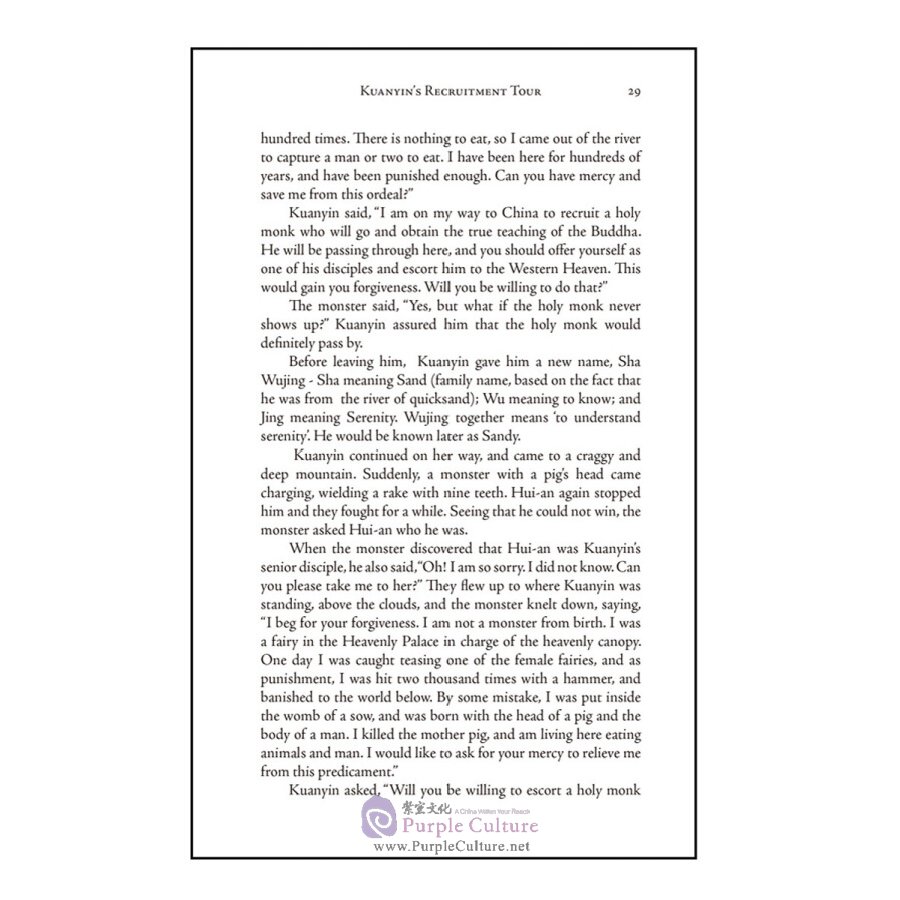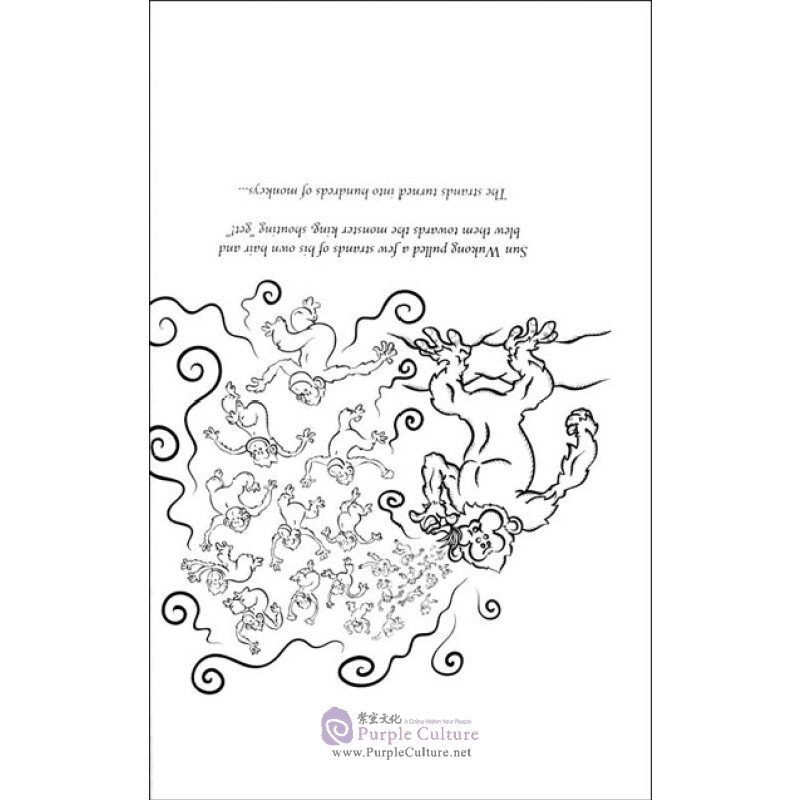



EPILOGUE
“Journey to West” is considered one of China’s greatest masterpieces in its popular literature. It is interesting to see why this book of fantasy gained such stature in Chinese popular culture.
It appeals to young and old because of the fantastic adventures, and because of the personalities of the protagonists: the Master for being upright if somewhat stiff and humorless; the monkey for being imaginative and loyal if rebellious; the pig for his sense of humor and cynicism; and Sandy for his stolid nature but solid loyalty.
But it is also a vivid description of Chinese society where there was no rule of law.
While I was delighted that my children enjoyed it in their childhood and later, it was not without some trepidation that I provide this retelling.
Even if one suspends one’s disbelief, the stories in this book are full of contradictions. As I was reading it for the first time some sixty years ago, I would find the story curiously unsatisfying when the monkey snuck into a demon’s cave, stealthily and unobtrusively. Naturally rooting for him, I would say to myself, “Now you are in the demon’s cave and he is asleep. Take out your magic stick and crush him into a meatball!” When the monkey failed to do so, I found it frustrating.
Also, when the monkey said he could not carry his Master across the river because the Master was flesh and blood, I wondered how demons could carry him so easily to kidnap him.
I must confess that I judged the ethically objectionable behavior of the characters from the perspective of Western values. I was deeply offended by the way laws were so arbitrarily ignored or bent for the convenience of the powerful.
How come the Dragon King had to be beheaded for altering the amount of rainfall, while the underworld minister could get away with altering the length of life for Emperor Taizong?
The punishments meted out for some minor offenses were vastly out of proportion, while in some cases the offenses might have been very serious but were simply forgiven because the offenders were connected to powerful gods.
The society described in the book is the Chinese society of the Ming Dynasty, where corruption and an arbitrary ‘justice’ system made the lives of ordinary Chinese a living hell. In some measure, this arbitrariness and corruption continues today.
Perhaps this vivid description of Ming China is one of the book’s hidden virtues. The reactions of our children were interesting. They enjoyed the stories for their action, and considered the rest as ‘silly and childish’ without any sociological or moralistic wisdom. Perhaps that is the best reaction and the soundest critique of the story, and this book.